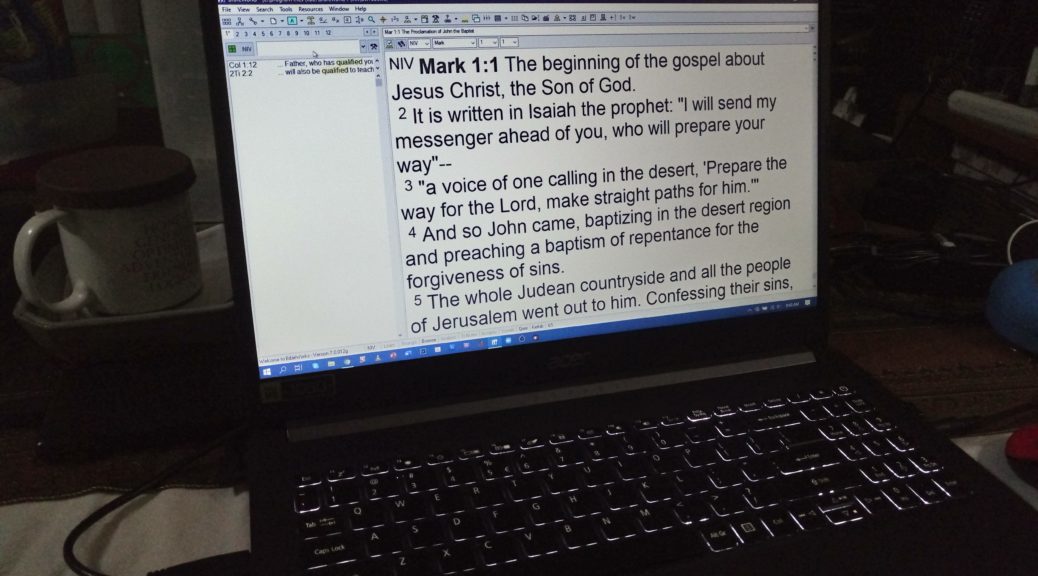Learning effective communication skills is always a plus. Being misunderstood is a common thing and it’s amazingly and especially true when it comes to biblical and doctrinal discussions. Doctrinal misunderstanding can develop into heated arguments and sometimes worse things can happen. It can show people’s character in the midst of a heated discussion.
Is there a way to better understand what the Bible is saying? Yes, there is a simple way. In understanding Scripture, it is always important to understand the main point of a passage or text under discussion. Always ask, “What’s the point?” That is very important in biblical interpretation as well as in our daily conversations. Getting the point will help remove a lot of misunderstanding and confusion.
Misinterpreting Scripture
Without realizing it, many of us misinterpret Scripture. We think that our views about the Bible are exactly God’s views. We think we have the mind of God and that our interpretation of the Bible is the only accurate one. This is fine as long as our views are really what God is truly saying in the Bible.
But oftentimes, we think that our perception, our understanding, our interpretation, our view on the matter, is the only correct interpretation of the Bible. We think that our view is what God is really saying in the Bible and all the others are wrong. And this is where we might be wrong sometimes — or oftentimes.
Hermeneutics
It is good to study something about biblical interpretation. The scholarly world calls it, Hermeneutics. It can intimidate some simple folks like us but Hermeneutics simply means the study of biblical interpretation. It is good to know that there are some basic principles to understand and consider when interpreting the Bible. Lacking this “tool”—without this knowledge and skill on how to properly interpret Scripture—some people come up with their own heretical ideas and “out-of-this-world” doctrines leading them to wrong beliefs and practices.
The Bible is a book composed of many books with different contexts, different authors, different literary backgrounds—poem, song, history, letter, etc. It also has different historical backgrounds, different cultural backgrounds, different eras spanning over a thousand years, written in several languages and grammatical construction, different purposes why a book was written, different audiences to whom the literature was written, and more!
Eisegesis
Reading into the Bible what is not there—your personal opinions, thoughts and ideas—interpreting the Bible without considering its various contexts is the reason why we have all kinds of conflicting religions and ideologies.
Exegesis
Reading the Bible based on what is really in the Bible considering all its various contexts (literary, historical, grammatical, cultural, geographical, etc.) is the right approach to understanding what God’s will really is in the Bible. Learning about Hermeneutics can be a great tool and help in our study of the Bible. There’s no harm in using this tool especially for would-be pastors, teachers, biblical interpreters and theologians.
Jesus Interprets Scripture
And the most important context that we should put into our every interpretation of Scripture is this: Jesus Christ. All our interpretation should have a center on Jesus Christ. He is the criterion and the basis for all our interpretation of Scripture. Jesus Christ should be our “lens.” We interpret Scripture in the light of who Jesus Christ really is. This is always the correct way to interpret Scripture. Jesus said all Scripture points to him and is all about him. Jesus Christ who is the Living Word interprets for us the Written Word, the Bible. All our biblical interpretation should center on Jesus Christ not on ourselves and our own experience. Our Bible interpretations should be Christ-centered and not man-centered.
Thankfully, the Lord Jesus promised that the Holy Spirit will guide us into all truth (John 16:13). He will not leave us to grope in the dark as to what the Lord’s will really is. He will in his own good time, correct our misunderstanding, correct our erroneous views. Now that I’m a bit older, I have found it wiser to be more tolerant about other people’s views and to follow the traditional advice regarding one’s theological stand: “In essentials, unity. In non-essentials, liberty. But at all times charity (love).”
And so, what’s the point? Don’t forget to always ask that question when reading Scripture. It will help you understand the Bible better—hopefully.

